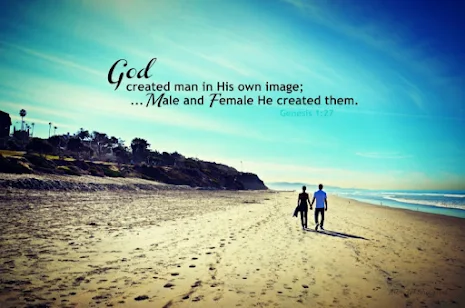
In today's Gospel, Jesus emphatically underscores the unified origin of
humanity. The debate among scholars and scientists regarding the singular or
multiple origins of humanity is longstanding. Yet, irrespective of the
adherence to the “out of African theory[1] or the Multiregional hypothesis,[2] one incontrovertible truth
prevails: the color of the blood is the same for all, we share the same humanity.
For believers, this human unity is divinely ordained. As the Book of
Genesis 1:27 profoundly states: “So God created man in his own image, in the
image of God he created him; male and female He created them.” In is quite interesting
to see how the Biblical text moves from “he created him” to “he created them”.
This underlines unity and plurality or diversity. While addressing the Crowd
and his disciples Jesus confirms this truth by saying: “You are all brothers
(and sisters) (Cfr. Matthew 23:8-12).
Jesus’ statement above emphasizes the
profound theological concept of God as the Father of all humanity. This truth
is at the heart of Jesus’ teachings, and mission. Understanding and believing
in God as Father of humanity transcends distinctions of race, gender, or social
status. This truth revealed by Jesus is deeply rooted in His unique relation
with God the Father and it has significant implications for our interpersonal
relationships and societal interactions. In Christ Jesus we are called to
become adopted children of God, and thus brothers and sisters of Christ. For
Jesus said: “whoever does the will of my Father in heaven is for Me a brother, a sister and a mother” (Matthew 12, 46-50).
The belief that every human being is created in God's image implies an
inherent dignity and worth in every person, regardless of their external
differences. By recognizing that we are all created in the image and likeness of God,
Christians are called to view others not as strangers or enemies, but as
brothers and sisters. This perspective fundamentally affects how we interact
with one another and can help in fostering a sense of unity and solidarity.
Jesus’ teaching that “we are all brothers (and sisters)”
challenges our societal norms and hierarchies. In a world often divided by
ethnicity, class, and other social constructs, Jesus’ words serve as a reminder
of our common humanity. This challenges us to look beyond superficial
differences and to treat each other with respect and love, thus reflecting God in
whose image and likeness we are created.
In practical terms, this belief in a common divine origin has profound
implications for social interactions and attitudes towards others, particularly
those different from us. It calls for an attitude of inclusiveness,
compassion, and understanding. It discourages discrimination, prejudice,
and any form of dehumanization. Instead, it promotes equality, justice, and
mutual respect.
Seeing others as children of the same Father compels us to work towards
a society where the rights and needs of all, especially the marginalized and
oppressed, are acknowledged, and addressed. It encourages believers to engage
in acts of charity, to fight against injustice, any form of social or racial
discrimination and to be peacemakers in a world rife with conflict.
Believing in God as the Father of all challenges calls us to recognize the divine image in every
person, to break down barriers of division, and to build a more compassionate
and just society. I believe we can build a society based on our common humanity, the world will be peaceful and three will be more justice. Let's move forward
in this direction this year 2024.
MAY GOD BLESS US AS WE ALLOW HIS WORD TO GUIDE OUR FOOTSTEPS TODAY🙏🙏🙏
[1] This is the most widely
accepted theory. It proposes that modern humans (Homo sapiens) evolved in
Africa and then dispersed to other parts of the world. This theory is supported
by a substantial amount of genetic evidence, which shows that the genetic diversity
of African populations is significantly higher than that of populations
elsewhere. This higher diversity in Africa suggests that humans have lived
there longer, supporting the idea that humanity originated there. Fossil
evidence, such as the discovery of early human remains in Africa, also supports
this theory.
[2] This hypothesis suggests that
modern humans evolved more or less simultaneously in several parts of the world
from earlier hominid populations like Homo erectus, which had already spread
out of Africa. According to this view, these separate populations evolved into
modern humans while maintaining genetic continuity. One of the main criticisms
of this hypothesis is the lack of strong genetic evidence to support it, as
most genetic studies have pointed to a single African origin.









